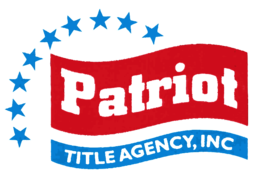Blog
Protect your commercial property title insurance investment with comprehensive due diligence from Patriot Title Agency in Canton, OH.

Commercial real estate investments represent significant financial commitments that require careful planning and thorough protection. Understanding the unique title considerations for commercial properties can mean the difference between a successful investment and costly complications.
Understanding Commercial Property Title Insurance Fundamentals
Commercial property title insurance is your primary defense against unforeseen title defects that could jeopardize your investment. Unlike residential properties, commercial real estate transactions involve complex ownership structures, multiple stakeholders, and intricate legal requirements that demand specialized expertise.
The title insurance process for commercial properties involves comprehensive research into the property's ownership history, outstanding liens, easements, and potential encumbrances. This thorough investigation helps identify issues affecting your ownership rights or the property's marketability.
Navigate Commercial Real Estate Due Diligence Successfully
Conducting commercial real estate due diligence becomes critical for protecting your investment when purchasing commercial property. This process involves examining multiple layers of documentation, including surveys, environmental reports, zoning compliance records, and existing lease agreements.
Start by reviewing the property's chain of title to identify any gaps or irregularities in ownership transfers. Look for outstanding mortgages, tax liens, or judgment liens that could create complications during the closing process. Additionally, verify that all previous transfers were recorded correctly and that no fraudulent activity has occurred.
Contact Patriot Title Agency in Canton, OH, at (330) 479-3000 for comprehensive commercial real estate due diligence services that protect your investment from hidden title defects and ensure a smooth transaction process.
Addressing Multi-Tenant Property Title Issues
Multi-tenant property title issues present unique challenges that require specialized attention. These properties often involve complex lease structures, shared common areas, and multiple access rights that must be clearly defined in the title documentation.
Consider how existing tenant leases might affect your ownership rights. Some commercial leases include options to purchase, rights of first refusal, or other provisions that could impact future business property ownership transfer opportunities. Understanding these contractual obligations before closing helps prevent unexpected limitations on your property rights.
Essential Steps for Business Property Ownership Transfer
The business property ownership transfer process involves several critical steps that differ significantly from residential transactions. Begin by assembling a qualified team of professionals, including experienced title agents, commercial real estate attorneys, and qualified surveyors who understand commercial property requirements.
Verify that all corporate entities involved in the transaction are properly formed and authorized to enter into the agreement. This includes confirming that corporate resolutions, partnership agreements, and LLC operating agreements provide the necessary authority for the transaction.
Navigating Commercial Zoning Title Concerns
Commercial zoning title concerns can significantly impact your property's value and intended use. Before finalizing any commercial purchase, thoroughly investigate the property's zoning classification and any pending zoning changes that could affect your business operations.
Review the property's compliance with current zoning requirements, including setback restrictions, parking requirements, and permitted uses. Non-conforming uses or zoning violations discovered after closing could result in costly corrections or limitations on your business operations.
Examine any special assessments or improvement districts that might affect the property. These assessments can create ongoing financial obligations that impact your investment's profitability and should be clearly understood before closing.
Call Patriot Title Agency in Canton, OH, at (330) 479-3000 to navigate complex commercial zoning title concerns and ensure your property meets all regulatory requirements for your intended business use.
Comprehensive Retail Property Title Protection Strategies
Retail property title protection requires attention to specific considerations that affect commercial viability. Retail properties often involve complex access agreements, shared parking arrangements, and reciprocal easements that must be appropriately documented and protected.
Investigate any restrictive covenants or deed restrictions limiting your ability to modify or change the property. Some retail properties include architectural restrictions, signage limitations, or exclusive use clauses that could affect business operations.
Advanced Title Protection Strategies for Commercial Success
Successful commercial real estate investors understand that commercial property title insurance extends beyond basic coverage. Consider purchasing enhanced title insurance policies that protect against specific commercial risks, including zoning violations, encroachment issues, and access rights.
Work with your title company to identify potential title curative actions that might be necessary before closing. Some commercial properties require quiet title actions, boundary line adjustments, or other legal procedures to clear title defects and ensure marketable ownership.
Taking Action on Your Commercial Investment
Commercial real estate title considerations require expertise, attention to detail, and comprehensive protection strategies. By understanding these key factors and working with qualified professionals, you can protect your investment and avoid costly complications that could impact your business success.
Remember that every commercial property presents unique challenges and opportunities. Thorough due diligence, proper title insurance coverage, and professional guidance create the foundation for successful commercial real estate investments that generate long-term value.


